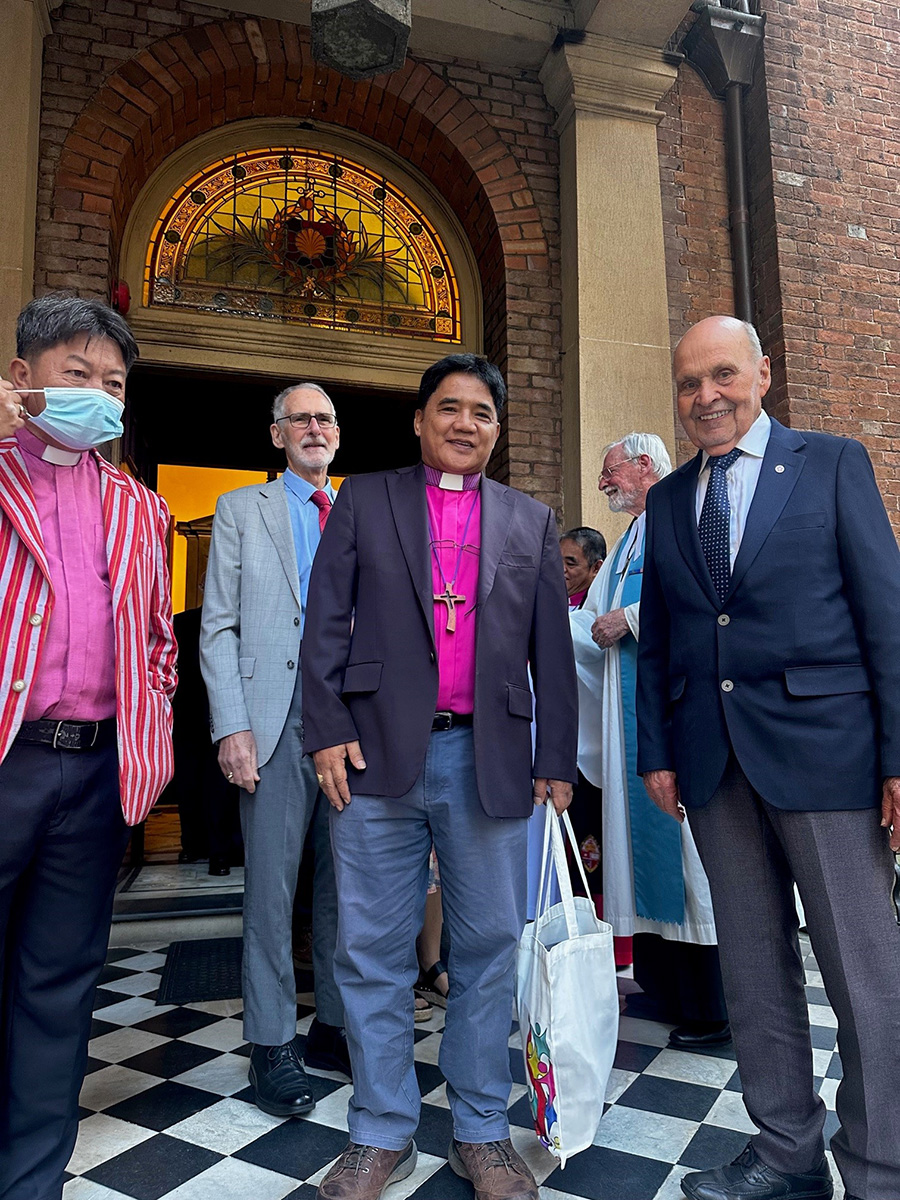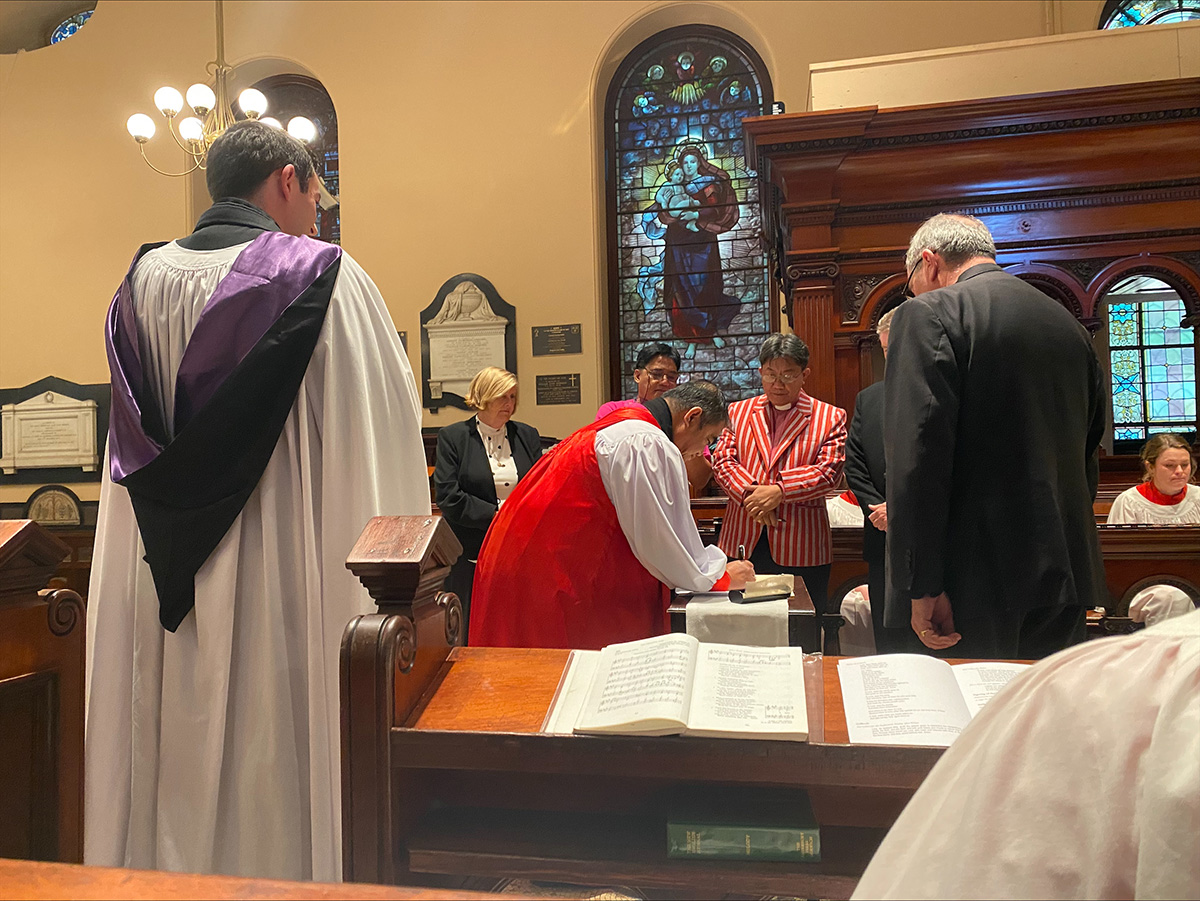Visiting Philippines bishops sign historic new partnership agreement with ABM AID
Celebrating thirty years of partnership with the Episcopal Church in the Philippines
ABM, AID, and the Episcopal Church in the Philippines (ECP) recently celebrated thirty years of partnership with a visit by the church’s Prime Bishop, the Most Reverend Brent Alawas, and two fellow bishops to Australia.
During the bishops’ visit a new Partnership Agreement was signed in St James’ Church, King Street, Sydney. The bishops also travelled to different parts of the Anglican Church in Australia to speak about their work.
ABM and AID highly value our partnerships. With partnerships for development, our long-term aim is to support our partners eventually to become self-sufficient. And this is exactly what has been happening in the ECP and its E-CARE Foundation.
When ABM first partnered with ECP, we funded a single project (model sustainable farm supported by a community cooperative). ABM’s support then grew to two or three community projects annually. Now there are around 120 partner communities a year being supported jointly by ABM-AID and ECP. ABM grant support reached its peak in 2010 at 11 million pesos (about $305,000) and then gradually reduced as ECP correspondingly increased its self-reliance capacity. This year, AID’s annual grant support represents only around 17% of that 2010 funding.
It has been a great delight to ABM and AID to witness this immense growth both in self-reliance and in the impacts that ECP and E-CARE are having around the Philippines, particularly in areas which are very remote and lack government services.
As the Prime Bishop Brent said in his address during the Partnership Agreement signing:
“In the alternate road going up to Sagada, Mountain Province, from the national highway towards Bontoc, one passes a sign in the barangay of Payag-eo which shows an Australian kangaroo underneath which is written these words, ‘This is a water project of the people of Payag-eo in partnership with the Anglican Board of Mission and the Episcopal Church in the Philippines.’ The project is now more than 10 years old, outliving the [normal] 10-year life span of a water project. Part of the project was a hog dispersal program that gave piglets to the more economically challenged households in the community in order that they can also make use of the availability of water to enhance their livelihoods. Those first line beneficiaries have subsequently passed on to the second and third liners in Payag-eo and the latter have, in turn, passed on to the adjacent community of Balili, which is now on its third and final round of pass-ons. We can expect that Balili will pass-on the blessings to the next community.
“This is the chain of God’s love that is part of what binds us in the ABM and ECP partnership. This is the solid rock upon which our relationship is built. Let this chain of God’s love be unbroken! Amen.”
Prime Bishop Brent also pointed to key directions for the future of the church, specifically providing leadership in how the church’s indigenous spirituality is being applied to communities today in living a Gospel life, as described in the Book of Acts:
“As we develop our institutions and leadership, we also continue to look into our theological enrichment and recently we have expressed keen and serious interest to study, adopt and live out our indigenous spirituality, especially since a majority of Filipino Episcopalians belong to various indigenous communities. In a world that is building fences of selfishness, indifference and apathy around individuals, families and communities, indigenous spirituality provides models on how modern communities can actually live out the Book of Acts, specifically the practice of early Christians of owning their resources in common and breaking bread in each other homes and hearts.”
ABM and AID give thanks to God for our partnership with ECP and E-CARE and look forward to continuing to learn from this important partner as it shines the much-needed light of Christ in our troubled world over the coming years.

ECP bishops with ABM and AID supporters outside St James’ Church, King Street ©Lina Magallanes, AID.
